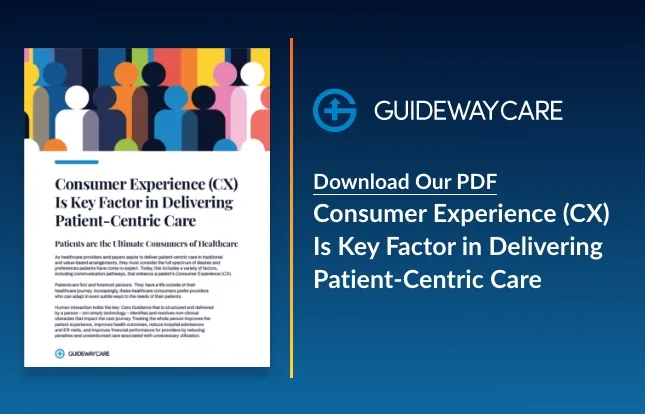Can Oncology Innovations Drive Value-Based Care? Exploring the Future of Cancer Treatment

Can oncology innovations drive value-based care? Yes, advancements like precision medicine, immunotherapy, and AI diagnostics are making a significant impact. This blog explores how these innovations are improving patient outcomes, cutting costs, and enhancing healthcare efficiency, ushering in a new era of effective oncology care.
Key Takeaways
- Advancements in oncology, including precision medicine, immunotherapy, and AI, are transforming cancer care by promoting personalized treatments that enhance patient outcomes and reduce unnecessary procedures.
- The integration of oncology innovations into value-based care models improves patient experiences and outcomes, reduces costs, and emphasizes the importance of addressing social determinants of health.
- Guideway Care plays a vital role in supporting the implementation of oncology innovations by extending clinical teams, addressing barriers to care, and leveraging technology to enhance the overall quality of cancer treatment.
Understanding Oncology Innovations

Cutting-edge developments in oncology are transforming cancer care by providing personalized treatments designed to suit the unique genetic and molecular makeup of each patient. As a result, these targeted therapies improve efficacy while minimizing exposure to ineffective treatments and unnecessary procedures. This move towards precision medicine is refining the landscape of oncology care, honing treatment strategies with greater accuracy.
Such advancements are not limited solely to individualized therapeutic approaches. Ground-breaking methods like immunotherapy coupled with AI-assisted diagnostic tools are also making substantial progress. These technological leaps forward enhance the accuracy of cancer care, bringing renewed optimism for patients as well as healthcare providers involved in their treatment.
We will delve into these significant innovations and discuss how they contribute to reshaping the future prospects for those undergoing cancer therapy and broader trends within healthcare management specific to providers specializing in oncology.
Precision Medicine in Oncology
Tailoring oncology treatment to the specific genetic makeup of individuals, precision medicine serves as a cornerstone for value-based patient care. By focusing on unique patient characteristics, this method reduces instances of ineffective interventions and propels better health outcomes while conserving healthcare resources.
The infusion of precision medicine into current oncology practices is transforming cancer treatment by promoting personalized therapeutic strategies that elevate the quality of patient outcomes. This shift supports value-based objectives in oncology care by eliminating redundant therapies and enhancing treatment efficiency.
Adopting precision medicine ushers in an era where future cancer management becomes increasingly focused, resource-effective, and potent in its efficacy.
Immunotherapy Breakthroughs
Immunotherapy harnesses the immune system to fight cancer with greater efficacy. Advancements in this field have honed the precision of immunological responses, enabling therapies that are more specifically targeted. These developments foreshadow a new era of innovative treatment approaches with the potential to transform how cancer is treated.
A recent investigation into immunotherapy has yielded encouraging findings, underscoring its capacity to improve patient outcomes and inject fresh optimism into treatment scenarios. This form of therapy leverages the body’s defense mechanisms, offering treatments that are both potent and tailored on an individual basis.
The ongoing research and refinement of these methods signal an optimistic future for oncology care, promising enhanced strategies for combating cancer.
AI and Machine Learning in Cancer Care
Artificial intelligence (AI) and machine learning are increasingly used in oncology to improve diagnostic accuracy and refine treatment predictions. AI technologies analyze complex cancer data, enhancing diagnostic precision. Deep-learning models in cancer imaging can automate and improve treatment outcome predictions, offering new possibilities for personalized care.
Integrating AI technologies into oncology practices transforms cancer care by enhancing diagnostic precision and predicting patient treatment responses. This improves patient outcomes and aligns with value-based oncology care, making treatment more efficient and effective.
Harnessing AI and machine learning promises a bright future for oncology.
The Impact of Oncology Innovations on Value-Based Care

Oncology innovations are pivotal in shifting towards value-based care models, focusing on enhancing outcomes and reducing costs. Integrating survivorship care with value-based oncology promotes efficiency and cost reductions. Guideway Care supports these innovations by providing tailored services that align with value-based principles, leading to better outcomes and reduced costs.
The shift from volume-based to value-based care is driven by the need for quality and efficiency. New oncology technologies aim to enhance patient care while adhering to the value-based care model principles, ensuring efficient and cost-effective treatments.
We’ll explore how these innovations impact patient outcomes, reduce costs, and improve patient experience.
Enhancing Patient Outcomes
Innovations in oncology care enhance patient outcomes through personalized treatments and reduced barriers. New clinical trials show immune checkpoint inhibitors can lead to complete responses in certain rectal cancer patients, eliminating surgery. AI helps reduce diagnostic errors and improve cancer detection rates.
Addressing social determinants of health, which influence up to 90% of outcomes, is crucial. Guideway Care reduces these barriers, improving health outcomes for oncology patients.
Successful integration of these innovations requires measurable improvements in outcomes and cost efficiency, leading to better patient care.
Cost Reduction Through Innovation
Decreasing the number of unnecessary diagnostic procedures and hospital readmissions through enhanced oncology treatments can lead to significant cost reductions. To implement these innovative treatments while maintaining financial health, strategic financial management is essential. Nevertheless, independent practices face substantial pressure from soaring operational expenses and insufficient reimbursement levels, which calls for immediate action to resolve these issues.
The adoption of new therapies frequently presents a financial burden for independent practices. Concentrating on achieving cost savings and fostering economic resilience aids these practices in moving towards value-based care models. Such an approach not only enhances patient outcomes but also secures their ability to deliver superior quality care sustainably over time.
Improving Patient Experience
Incorporating advancements in cancer care has the potential to markedly enhance the experience of patients, including reducing wait times to commence treatment. By employing Guideway Care Guides, who address non-medical patient barriers, they allow healthcare teams to devote more attention to delivering high-quality oncology services. This collaborative model promotes efficient and timely treatments that boost both satisfaction levels and health results for patients.
By prioritizing patient-centered practices within oncology and utilizing technological breakthroughs, healthcare providers can elevate both the quality of patient experiences and outcomes. Such a strategy is in harmony with value-based principles applied to cancer care, transforming the delivery process into one that’s not only more effective but also centered around the needs of individuals undergoing treatment.
Adopting these modern approaches brings an optimistic outlook for future developments in value-based cancer care – benefiting both those receiving treatment and professionals providing it within the sphere of healthcare.
Integrating Innovations into Value-Based Care Models

Adapting to value-based care models in the field of oncology involves overcoming obstacles and seizing potential benefits. Financial constraints and intricate challenges beset community oncology practices as they strive to incorporate advanced treatments into their healthcare delivery model. The absence of an adequate infrastructure within these practices often obstructs the seamless adoption of novel therapies.
To facilitate the integration of cutting-edge innovations in oncology with a focus on value-based care, there must be a rapid evolution of regulatory structures that provide support for such advancements. Guideway Care’s platform plays a pivotal role by offering services designed to optimize patient coordination and enhance quality in healthcare provision.
In our discussion, we will delve into strategies for cooperative care management, leveraging data-centric methods for informed decisions, and real-world examples that are instrumental for effective implementation.
Collaborative Care Approaches
Successfully enhancing cancer care and patient outcomes hinges on the interdisciplinary collaboration between oncologists, specialists, and primary care providers. Tailoring clinical pathways to include patient preferences bolsters shared decision-making, which in turn increases both satisfaction and engagement among patients.
To deliver consistent, evidence-based treatment for cancer patients, standardized clinical pathways are employed with the aim of improving outcomes. The implementation of Guideway Care Guides provides essential support by assisting patients as they navigate their healthcare journey. This allows healthcare providers to concentrate on more complex tasks. Through such collaborative efforts within the clinical team framework, comprehensive and coordinated support is achieved for better overall results.
Data-Driven Decision Making
Robust data collection and analysis are essential for evaluating treatment effectiveness and ensuring high-quality cancer care. Access to real-time patient data is crucial for informed decision-making, impacting treatment outcomes and patient experiences. Federated learning allows the development of AI models while maintaining patient privacy by utilizing data from multiple institutions.
Guideway Care captures data related to social determinants, helping identify and resolve barriers to care. Utilizing patient-reported outcomes tailors care decisions in value-based oncology, ensuring treatments are effective and patient-centered.
Leveraging data-driven decision-making, oncology practices can significantly improve patient outcomes and operational efficiency.
Real-World Applications
Recent immunotherapy developments aim to utilize the immune system more effectively against various cancer types. Community-based oncology practices leverage local resources to support cancer survivors. Successfully integrating oncology innovations is crucial for advancing value-based care and improving outcomes.
These integrations enhance value-based care by improving patient satisfaction and treatment effectiveness. Applying these innovations in real-world settings ensures patients receive the most effective and personalized care.
Embracing these advancements promises a brighter future for cancer care.
Overcoming Challenges in Implementing Oncology Innovations

The introduction of oncology innovations carries substantial benefits, yet their integration into practice is met with formidable obstacles. Adhering to healthcare regulations entails a considerable financial outlay, placing heavy strains on the resources of smaller practices. The shift towards value-based care models introduces monetary difficulties stemming from constraints in infrastructure and workforce capabilities. Overcoming these barriers is critical for ensuring the successful assimilation and application of novel treatments within oncology.
An additional significant impediment involves the ongoing education and training requirements for healthcare providers to stay abreast with swiftly evolving advancements. Regulatory frameworks must be updated promptly to reflect these changes and bolster support for value-based care initiatives. By addressing these pivotal areas, oncology practices can surmount existing challenges and harness the full advantages offered by recent medical breakthroughs.
Resource Allocation
Adopting value-based care models necessitates considerable investments in finances and infrastructure, which can pose a significant challenge for independent practices. It’s vital for these practices to allocate resources wisely to embrace cutting-edge treatments while maintaining financial health. Transforming into a practice predicated on value-based care hinges on the proficient use of data, which demands an advanced grasp of technology and data management.
To tackle challenges associated with data in their transition to value-based oncology care, the American Oncology Network (AON) established both a Value-Based Care team and a committee dedicated to quality care improvements. By employing approaches similar to those utilized by AON, other oncology practices are better positioned to overcome obstacles related to finance and infrastructure as they integrate new treatments and technologies effectively.
Training and Education
Healthcare professionals must relentlessly pursue ongoing education to stay abreast of the swift progress in cancer therapies. Consistently updating their knowledge base is imperative for successfully adopting new techniques and advancements, which are vital for sustaining superior patient care levels and enhancing treatment results.
Guideway Care plays a pivotal role in facilitating continuous learning by offering training programs and materials tailored for healthcare providers. They ensure that clinical personnel have access to the latest treatments and possess the necessary skills to provide top-notch care.
By giving prominence to education and professional development, oncology practices can navigate through obstacles associated with fast-evolving therapeutic options in cancer care.
Regulatory and Policy Considerations
The introduction of novel oncology treatments with the potential to enhance patient outcomes is often hindered by stringent regulatory obstacles. The existing frameworks governing approvals may struggle to match the pace at which oncology innovations emerge, leading to delays in making these therapies available. There is a pressing need for widespread policy reforms that support innovation while maintaining high standards of patient safety.
Working together, regulators, healthcare providers, and pioneers in medicine can refine processes and promote access to cutting-edge cancer therapies. Cultivating a regulatory landscape that embraces progress will ensure patients receive state-of-the-art treatment options more quickly. This collaborative approach promises not only superior outcomes for individuals battling cancer but also contributes toward streamlining the entire healthcare system’s operations.
Final Thoughts
Transformative advances in oncology are revolutionizing the treatment of cancer, delivering tailored and efficient therapies that markedly enhance patient outcomes. These developments—including precision medicine, immunotherapy innovations, and AI-based diagnostics—are offering newfound optimism for both patients and healthcare providers by spearheading a move towards value-based care focused on the quality and efficiency of services provided.
In this landscape, Guideway Care is instrumental in facilitating these cutting-edge advancements by providing tools and resources to strengthen clinical teams while addressing social health determinants through technological applications. We are committed to supporting care teams in delivering personalized, value-based oncology care. Contact us today to see how we can help elevate your healthcare practice and patient outcomes.
Frequently Asked Questions
1. How does technology play a role in oncology?
Technology plays a crucial role in the field of oncology by providing tools and resources to strengthen clinical teams and improve patient outcomes. It is also being used to address social health determinants, such as access to healthcare and education, which can greatly impact a patient’s ability to receive proper treatment.
2. What are some challenges that practices within oncology face when implementing new technology?
One major challenge is navigating the distribution of resources, such as funding for expensive equipment or training for staff on how to use new technology. Additionally, there may be regulatory requirements that need to be met before implementing certain technologies in patient care.
3. How can technology help personalize cancer treatment?
Advancements in technology have allowed for more precise and individualized treatment plans for cancer patients. For example, genomic testing can identify specific genetic mutations in a patient’s tumor, which can then inform targeted therapies that may be more effective for that particular type of cancer. Additionally, technology has enabled the use of electronic health records and telemedicine, allowing for easier communication between healthcare providers and personalized care based on a patient’s medical history.
Contact Us Today To Learn How We Can Help
"*" indicates required fields




